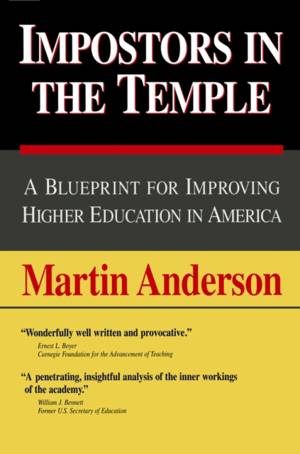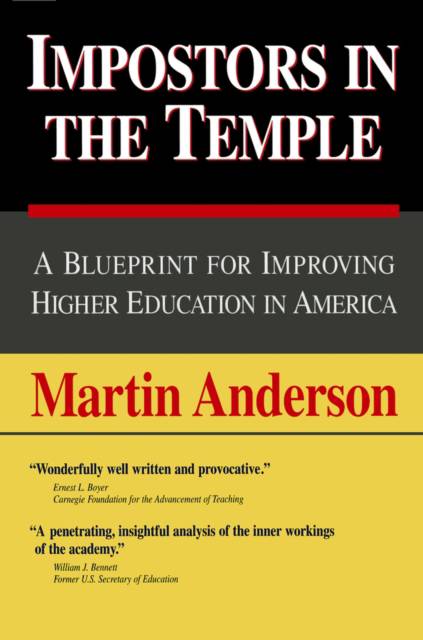
Bedankt voor het vertrouwen het afgelopen jaar! Om jou te bedanken bieden we GRATIS verzending (in België) aan op alles gedurende de hele maand januari.
- Afhalen na 1 uur in een winkel met voorraad
- In januari gratis thuislevering in België
- Ruim aanbod met 7 miljoen producten
Bedankt voor het vertrouwen het afgelopen jaar! Om jou te bedanken bieden we GRATIS verzending (in België) aan op alles gedurende de hele maand januari.
- Afhalen na 1 uur in een winkel met voorraad
- In januari gratis thuislevering in België
- Ruim aanbod met 7 miljoen producten
Zoeken
€ 26,45
+ 52 punten
Omschrijving
Imposters in the Temple, a hard-hitting, eye-opening book about the intellectual and moral decay of American universities and colleges, has been updated and expanded in this new paperback edition from the Hoover Institution Press. Martin Anderson--a former White House policy adviser to Presidents Nixon and Reagan and a member of the academic world for more than three decades--takes U.S. academics to task in this powerful book, which has been hailed for its scope and clarity. Topics include the corrupt practices now rampant in our universities; how professors have abandoned the classroom, turning over much of their teaching responsibilities to unqualified students; and how intellectual standards, in both grading and research, have sunk to new lows. Anderson offers a bold blueprint for restoring the intellectual integrity of American universities, one that would allow them to achieve the greatness they are capable of. He concludes on an optimistic note, pointing out that many of our elite universities have recognized the seriousness of the intellectual declines that took place during the 1970s and 1980s and are beginning, quietly and slowly, to clean their academic houses.
Specificaties
Betrokkenen
- Auteur(s):
- Uitgeverij:
Inhoud
- Aantal bladzijden:
- 266
- Taal:
- Engels
- Reeks:
- Reeksnummer:
- nr. 436
Eigenschappen
- Productcode (EAN):
- 9780817994426
- Verschijningsdatum:
- 1/09/1996
- Uitvoering:
- Paperback
- Formaat:
- Trade paperback (VS)
- Afmetingen:
- 153 mm x 230 mm
- Gewicht:
- 462 g

Alleen bij Standaard Boekhandel
+ 52 punten op je klantenkaart van Standaard Boekhandel
Beoordelingen
We publiceren alleen reviews die voldoen aan de voorwaarden voor reviews. Bekijk onze voorwaarden voor reviews.









